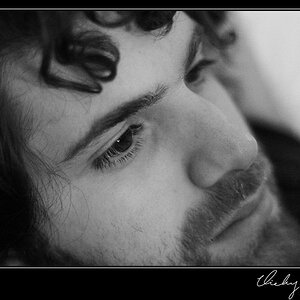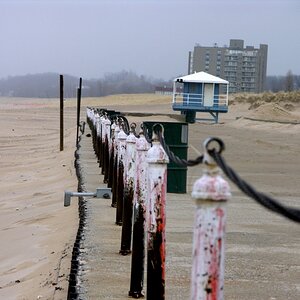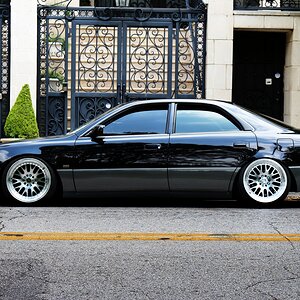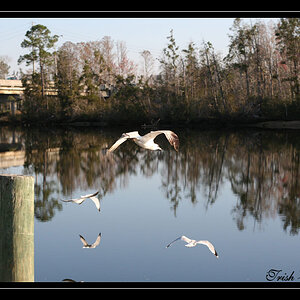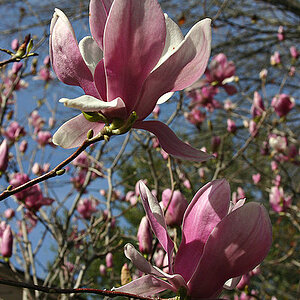inTempus
TPF Noob!
- Joined
- Dec 15, 2008
- Messages
- 3,692
- Reaction score
- 4
- Location
- Indiana
- Can others edit my Photos
- Photos OK to edit
I thought I would investigate optical decentering as mentioned several times by Derrel now regarding Canon. His comments seem to imply that Nikon has perfect lenses, or nearly perfect, while Canon lenses are plagued with issues. Derrel has also implied that Nikon tests all of their lenses whereas Canon doesn't, and thus Nikon warrants the premium they charge for their lenses. I would like to see a source for this claim as I can't seem to find anything definitive on my own.
First, optical decentering isn't an issue encountered with Canon only. It happens with all manufacturers, Nikon included.
Here's an article that touches upon the issue and cites a specific Nikon lens this reviewer had the issue with.
Lens Evaluations
It doesn't seem to be something you can find a lot of info on with a Google search.
But I did find an interesting survey conducted by Lens Play.
It would seem, based on their survey findings, that statistically you're more likely to get a good Canon Lens than a good Nikon lens.
Would I put much stock in this? Not really. I would say Canon and Nikon are pretty evenly matched and a few percentage points here and there aren't to be taken too literally.
What it does show is that the notion you're more likely to get a crappy Canon lens vs. a Nikon lens is more than likely false.
I am open to other surveys or studies that show otherwise though and would welcome them.
First, optical decentering isn't an issue encountered with Canon only. It happens with all manufacturers, Nikon included.
Here's an article that touches upon the issue and cites a specific Nikon lens this reviewer had the issue with.
Lens Evaluations
An issue frequently left out from reviews is the variation found in optical products. All manufacturers gloss over this and say that their products are "quality tested" before shipping. Take it with a pinch of salt. This statement is virtually always true for long lenses, often true for medium long lenses, and more commonly false than you would like to care about for short lenses and zooms.
...
A typical example is the exciting AFS 17-35 mm f/2.8 Nikkor, which incidentally is a lens that I literally had available by dozens. I found in early production runs of this very expensive lens samples that showed mild degrees of optical decentering, or focus shifts within the zooming range.
It doesn't seem to be something you can find a lot of info on with a Google search.
But I did find an interesting survey conducted by Lens Play.
Survey Results
Note: Values are greyed out if there are less than 300 lenses sampled
Canon lenses - 11393 with 853 defects
The probability of getting a good lens is 93 %
The probability of getting 5 good lenses in a row is 68 %
Sigma lenses - 2405 with 545 defects
The probability of getting a good lens is 77 %
The probability of getting 5 good lenses in a row is 28 %
Tamron lenses - 1203 with 183 defects
The probability of getting a good lens is 85 %
The probability of getting 5 good lenses in a row is 44 %
Tokina lenses - 404 with 67 defects
The probability of getting a good lens is 83 %
The probability of getting 5 good lenses in a row is 40 %
Nikon lenses - 2038 with 163 defects
The probability of getting a good lens is 92 %
The probability of getting 5 good lenses in a row is 66 %
It would seem, based on their survey findings, that statistically you're more likely to get a good Canon Lens than a good Nikon lens.
Would I put much stock in this? Not really. I would say Canon and Nikon are pretty evenly matched and a few percentage points here and there aren't to be taken too literally.
What it does show is that the notion you're more likely to get a crappy Canon lens vs. a Nikon lens is more than likely false.
I am open to other surveys or studies that show otherwise though and would welcome them.
Last edited:


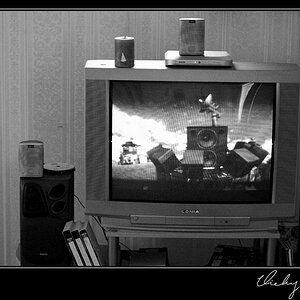
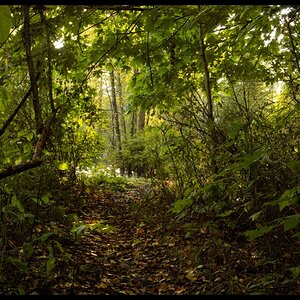
![[No title]](/data/xfmg/thumbnail/41/41899-007f14ae0d832ef200fd62eedc4da42e.jpg?1619739936)
![[No title]](/data/xfmg/thumbnail/41/41901-789e8104ff95e5862c8f07611e3c34c0.jpg?1619739938)
